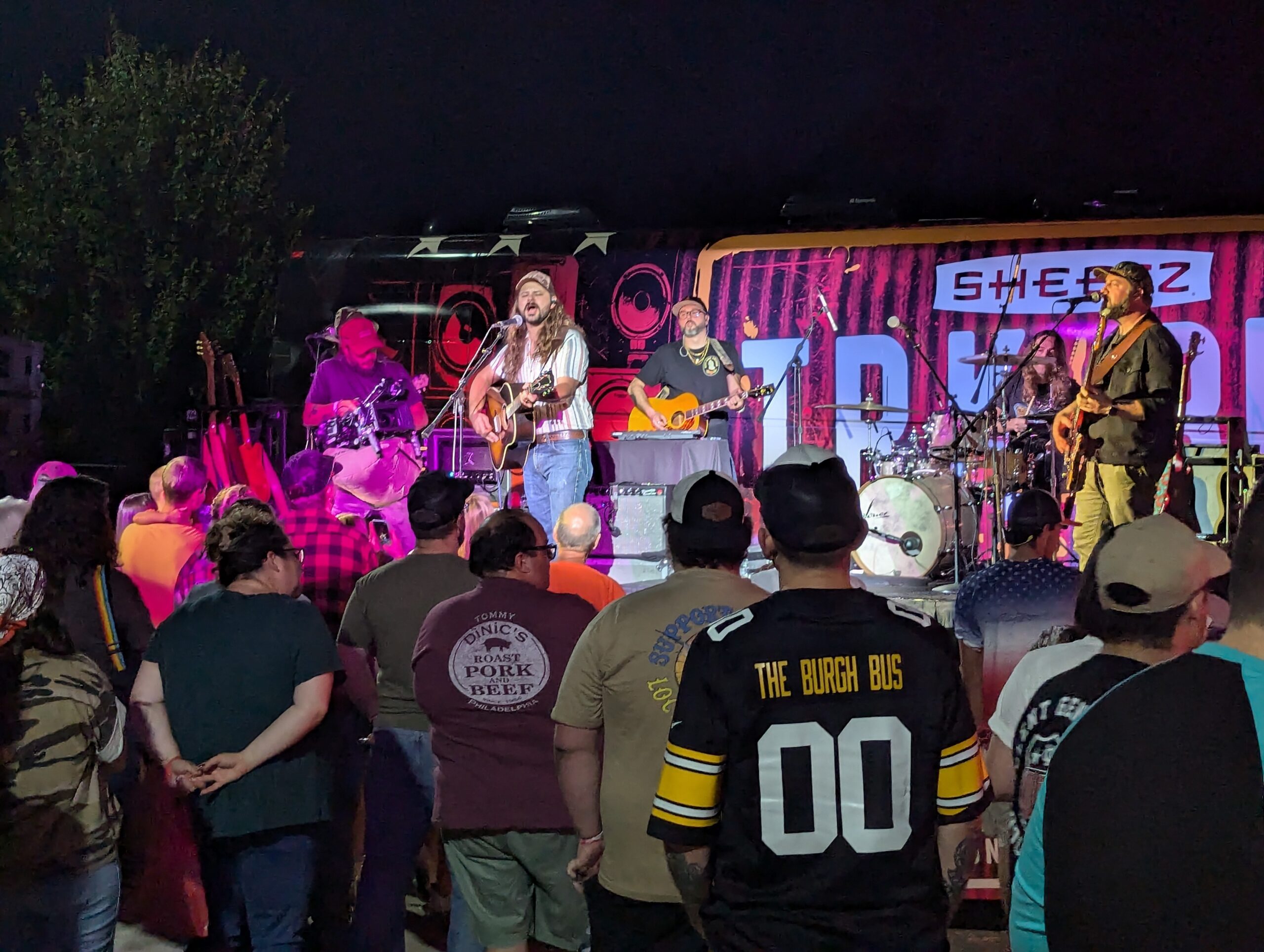Sonic evolution can be a difficult balance for any musical act. If a band stays too comfortably in one lane, they run the risk of getting stale and beating the same tired ideas into the ground. However, those bands that dare to expand their sound in dramatic and unexpected ways have the potential of alienating large segments of their fanbase, or even losing touch with what was central to their appeal in the first place. Deaf Havana is certainly not a band that can be accused of staying in one lane.
The British group began their career making energetic, emotionally charged post-hardcore featuring the screams of former vocalist Ryan Mellor. However, even in their early work, the true star of the show was singer/guitarist James Veck-Gilodi. His soaring powerhouse voice, combined with a gift for honest, relatable lyricism, gave their 2009 debut Meet Me Halfway, At Least its emotional center. So when Mellor left the band the following year, it only made sense to put Veck-Gilodi center stage. However, the shifts in sound the band took following Mellor’s departure were significantly less predictable. Fools and Worthless Liars took the catchiest melodic elements of their previous work and distilled it into an extremely infectious alternative rock blend, and Old Souls pushed these elements in the direction of expansively timeless stadium rock indebted in equal measure to Springsteen and Foo Fighters. Yet the reason these changes landed so perfectly was that Veck-Gilodi’s passion and gift for musical storytelling never wavered. Even those who may not be fans of Deaf Havana’s changes in sound had to concede that songs like Fools and Worthless Liars standout “I’m a Bore, Mostly”, and “Caro Padre”, the stunning closer of Old Souls, were dripping in emotion and earnest meaning. While the band has indeed grown increasingly accessible, they have never lost touch with what initially made them great.
Fortunately, this balancing act is pulled off with flying colors once again on Deaf Havana’s fourth full-length, All These Countless Nights. In many ways, this album is where the band ties the extremely personal storytelling and classic rock excursions of Old Souls together with the more modern, hard-hitting sound of Fools and Worthless Liars. The result is a listening experience that is truly more than the sum of its parts, one that can be described as that of a band coming into its definitive sound. Where Old Souls occasionally felt a little too on-the-nose in its Springsteen adoration, here the band manages to take the many great elements of that album and give them a more contemporary makeover. “Ashes, Ashes” is easily the best opening track this band has ever produced, beginning with Veck-Gilodi softly leading the listener in over the mellow strumming of an acoustic guitar, before expanding into a thundering stadium-ready chorus:
“And if we drive away
To the place I love the most,
When my lungs collapse and my heart turns black
I’ll give my ashes to the coast”
Elsewhere, “Fever” is one of the band’s most infectious and radio-ready singles to date, with a hooky bassline that will immediately lodge itself in a listener’s head. “Sing” pays tribute to the ‘90s alt rock of The Smashing Pumpkins with a high-energy distorted riff, while Veck-Gilodi makes the song his own with lyrics about the daily struggles of overcoming jealousy and feelings of longing. While the material here doesn’t always reach for the same level of emotional depth as that of Old Souls, it avoids that album’s occasionally dated feel by incorporating a wider palate of sonic influences. “L.O.V.E.” prominently features a gorgeous synthesizer and subtly distorted vocals in its verses before the guitars kick in for a hard-hitting chorus that makes the track the heaviest the band has produced since Fools and Worthless Liars. “Pretty Low” makes use of a skittering drum machine, while the bridge of the song features a searing distorted guitar solo. Subtle surprises like these keep the listener on their toes, while Veck-Gilodi gives his most refined vocal performance to date, tender and delicate at exactly the right moments, and packing a ferocious bite whenever the song calls for it.
While All These Countless Nights is certainly a more energetic listen overall than Old Souls, it still packs a huge emotional punch, particularly on the ballads “Seattle” and “St. Paul’s”. “Seattle” in particular is one of the band’s most affecting tracks to date, describing the sensation of feeling out of place in a new home, after leaving behind an old life and the people and experiences it was filled with. It’s a song that draws its energy from the simple power of its narrative, one that anyone who has left behind an old home to strike out a new life can relate to immensely. In many ways, that makes the track representative of All These Countless Nights as a whole, where emotional resonance takes precedence over empty bombast and technical flash. While the album’s 12 tracks are certainly extremely well-performed and intricately executed, their true lasting power comes from their ability to connect with wherever a listener is at in their own life. This is an album that, like the two preceding it, will be able to mean different things to someone at different points in their life. True lasting power isn’t always easy to find in contemporary rock bands, but Deaf Havana have proved once again that they have the ability to create an album that can stand the test of time.
Score: 4.5/5





